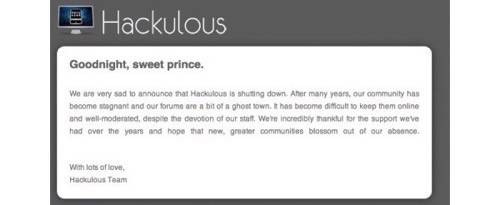
The bane of anybody that creates content for a living are pirates. These new-aged privateers love nothing more than to crack open your hard work, put it online and distribute it for free. Pirates are especially painful for app developers, many of which are independent individuals or small startups looking to make a living from their creative efforts to help people perform an activity like playing a game, listening to music, be more productive or find their way around.
App pirates cost developers money. On Android, that sometimes means that just breaking even on your efforts can be near impossible. The problem has not been quite as bad on Apple’s iOS, but the company has long fought the “jailbreak” culture that allows users to bypass the App Store and download paid apps for free.
Installous Is Dead
Apple and its devoted developers are probably singing songs of hosanna today. The rescue from the pirates has finally come, though it appears to be more of an implosion of the app cracker community than a concerted effort of legion forces coming to succor the developer community.
The heart of the iOS pirate community, Hackulous, has shut down. That means that its Installous service that helped people pirate iOS apps through faux App Store Apptrackr has also been borked.
Hackulous posted this message on its website over the weekend.

How Worried Should Devs Be About Piracy?
Piracy is a matter of scale. Those small and indie devs should probably be less worried about pirates than large developers who are reaching the heights of popularity and need to be worried about big percentages getting trimmed off their bottom line. In fact, some smaller developers might benefit from their apps being pirated as the viral quotient has the potential to rise when many users are spreading an app among themselves.
Some developers think that piracy is a problem for the operating system manufacturers and not the app publishers themselves. Making sure your app is hard to crack can be a difficult task, especially if you do not have the resources or expertise to pull it off. Many app developers are proficient at certain tasks, such as HTML/CSS development or native codes like C/C++. Security in its varying forms sometimes falls by the wayside.
“Piracy is a Ferrari problem for most app companies,” said Ryan Luedecke, online marketing manager at Mojo Helpdesk. “It’s not something to spend time worrying about until you’ve reached a critical mass of downloads – and even then it’s probably not worth the effort. App developers should be thrilled when consumers like their app enough to try and steal it or if rogue developers respect it enough to try and copy it. Let Apple and Google work on the piracy issue because they have the resources to do so – they also have more at stake. The last thing we want to do as app developers is spend time becoming sort of Lars Ulrich-like crusaders against piracy.”
Piracy can also be regionally specific. Two developers dealing with piracy in 2012 noted that iOS and Android piracy in China was near 100%. Game developer Madfinger noted that its original Shadowgun app was almost entirely downloaded illegally in China. Other app developers see piracy rates of between 10% and 15% on both iOS and Android.
From a developer standpoint, piracy can be a matter of some subjection. For instance, was the person downloading the app ever likely to buy the app? The case is probably no. Hence, that is not a lost sale. What about pirated apps costing money in terms of server costs, lost ad impressions and labor hours to combat the lost revenue? Yes, that can be a significant problem.
Technical Solutions Hard To Come By
Installous and Apptrackr were cogs in the system. If you think that someone will not come around and recreate them within a week (and take off in popularity, given the Hackulous void), then you are kidding yourself.
From a developer standpoint, it is very difficult to build an app that cannot be “cracked.” Really, if your app is good and the pirates are motivated, they are going to crack it. The best you can do is make it harder for them by employing some decryption techniques but that will only deter the laziest of hackers.
Many developers, especially game publishers, have taken to the freemium model to beat piracy. Logic and anecdotal evidence tells us that the higher a game is priced in the App Store or Google Play, the more likely it is to be cracked and pirated. The freemium model relies on in-app purchases and advertising for revenue while giving the actual download of the game out for free. The more stringent adherents to freemium might give away a nominal amount of content in their apps while making it next to impossible to do anything without making a purchase. Others may get you hooked with a fair amount of app features before blocking you before you go any further. In-app strategy or other creative revenue streams are the biggest and best weapons developers have against the pirates.
The fact of the matter is, no matter how hard Apple or Google (or the FBI) try, nobody is getting rid of piracy in its entirety. Ask the film industry. Ask the music industry. The pirates are always, always, always going to figure out how to get what they want. The best deterrent is to make the barrier for entry into piracy sufficiently high so that only the most motivated will follow through. With Apptrackr and Installous combined with many developers’ loose security practices, the piracy barrier was very low, which is what has led to the proliferation of piracy, especially on iOS.
In the end, the death of Hackulous will be really no different than demise of AOL Message Boards or Usenet. Just because the forum has disappeared does not mean that the people on it are gone. We will likely see a drop in iOS app piracy in the short term. But that will not last forever. The current set of tools are gone but does not mean that people are not still motivated to get something for free.
Image courtesy of Shutterstock.









